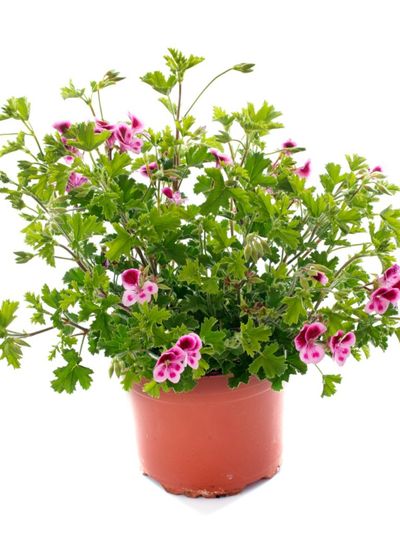If you live in a colder region, you can bring your plant indoors and continue to grow it there. Although these plants bloom, they are grown for their citrusy scent that is thought to repel mosquitos.
Mosquito Plant Citronella Indoors
One of the most important parts of growing citronella plants inside is to give these plants as much direct sun as possible. If you can give citronella plants six or more hours of direct sunlight every day, it will keep the plant bushier and more sturdy. If your houseplant citronella is not getting enough light, the stems will stretch out, weaken, and tend to fall over. If you see this occurring, prune the weakened stems back and place the plant in an area with more direct sun. Allow the top inch (2.5 cm.) or so of your indoor citronella geranium’s soil to dry out before watering it again. You’ll want to keep the potting mix relatively moist and take care not to allow the soil to dry out completely. Be sure to use a good well-draining potting mix and fertilize regularly for best results. If you have grown your plant outdoors and you don’t want to take in a large plant, you can easily propagate cuttings at the end of the summer and pot them up for indoor use. To accomplish this, you can use the layering technique. Simply bend one of the plant stems over, taking care not to snap it, and simply bury the stem into another pot of soil that you’ve placed right next to the mother plant. You’ll want to bury part of the stem where there is an actual leaf attached. The roots will grow from this location, called the node. Leave the growing tip of that stem exposed though. Sometime before frost occurs, after a few weeks’ time, the buried part of the stem should have rooted. Simply cut the stem off of the original plant and move your plant indoors for the winter. Place it in the sunniest window you have, and your new citronella plant will be off to a great start!
